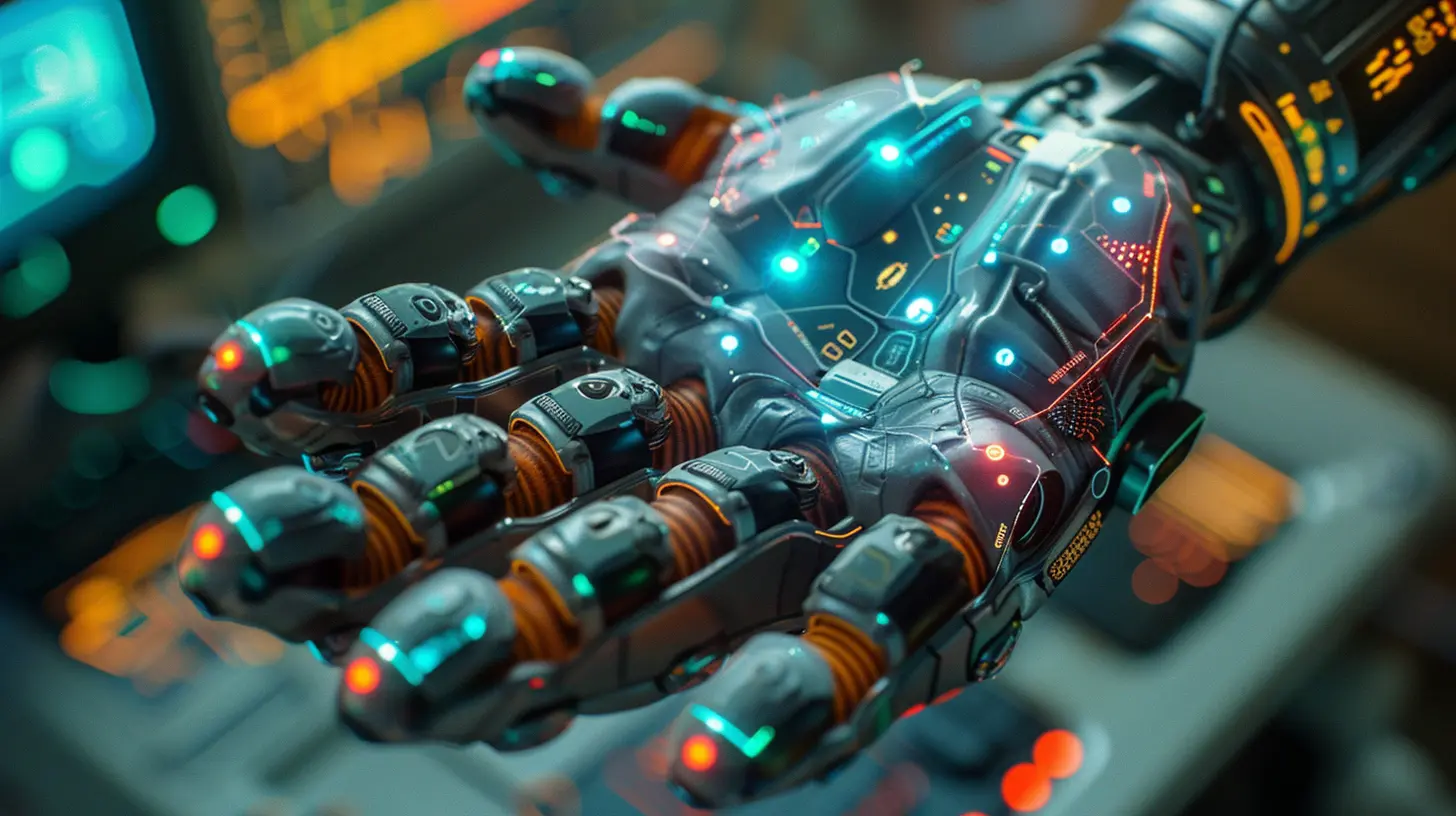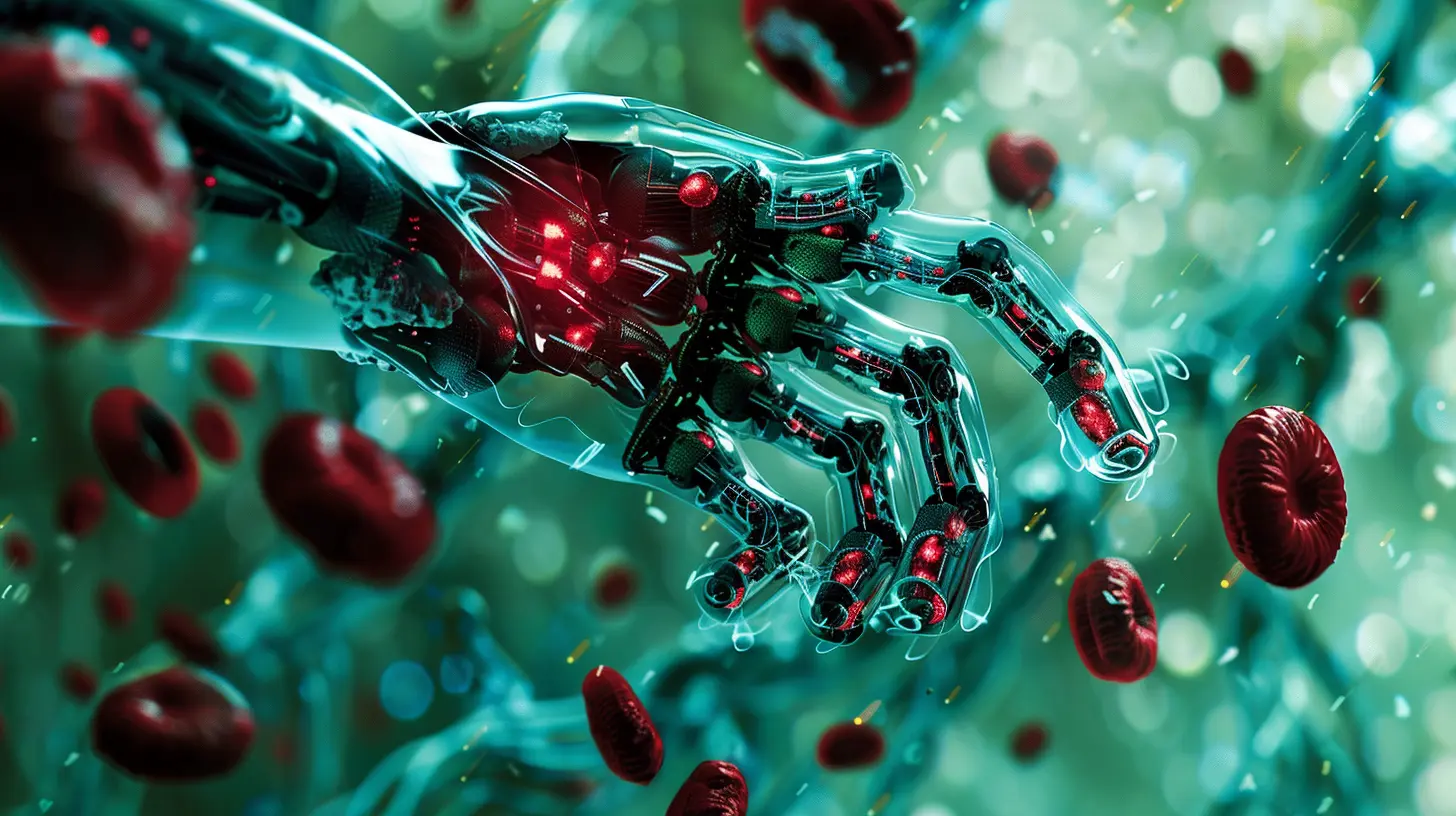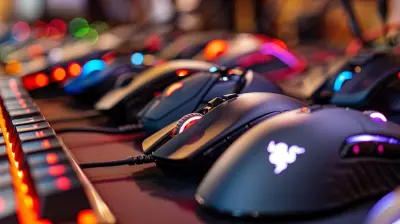How Biohacking Will Shape the Future of Human Enhancement
13 September 2025
Alright, time to buckle up, buttercup, because we’re diving headfirst into a world where humans are the science experiment—and guess what? We're also the scientists. Welcome to the weird, wild, and downright fascinating universe of biohacking, where the line between tech and flesh blurs faster than you can say “neuroplasticity.”
If you haven't heard of biohacking, one: where have you been?! And two: you're about to get the 411 on how humans are using cutting-edge science, DIY tech, and a bit of rebellious spirit to reshape what it means to be human. We're not talking wearable fitness trackers or popping multivitamins here—we’re talking magnetic implants, gene editing, brain-boosting nootropics, and potentially saying “sayonara” to aging.
So grab your coffee, your smart glasses (if you’re that cool), and let’s decode how biohacking isn’t just a fringe movement—it’s the future of human enhancement.
What Even Is Biohacking?
Let’s start simple. Biohacking is basically the art and science of modifying biology. Think of it as hacking your body the way a coder hacks a computer—but instead of rewriting lines of code, you're tweaking your own biology to live longer, think faster, feel better, or just look cooler with LED-lit implants. No biggie, right?There are levels to this madness:
- DIY Biology: Amateur biologists playing with genetics and molecular biology in their garages.
- Nutrigenomics: Using food and diet to influence gene expression. Yes, your kale obsession might actually be legit.
- Grinders: The hardcore crowd implanting RFID chips, magnets, and who-knows-what-else under their skin.
- Wearable Tech & Biometrics: Gadgets that track everything from REM cycles to blood oxygen levels to optimize performance.
Some biohacks are as simple as cold showers (ugh), while others are, well, a bit more invasive. Either way, the goal is the same: become a superhuman. Or at least a slightly better version of yourself.
The Rise of the Cyborg: Tech Meets Flesh
If you thought cyborgs were just sci-fi nonsense in movies like Terminator or Robocop, think again. Biohackers are already implanting RFID chips in their hands to unlock doors, store digital data, or breeze through airport security like futuristic bosses.Here’s what’s cooking in the cyborg kitchen:
- RFID & NFC Implants: These chips turn your body into a walking wallet, key, or ID.
- Magnetic Implants: Tiny magnets inserted under the skin to feel electromagnetic fields. You’re basically getting a sixth sense.
- LED Implants: For those who want to quite literally light up a room. Not super practical, but hey, it makes a statement.
These aren’t just for shock value (although, let’s admit it, they’re cool AF). They hint at a future where human capabilities are fused—seamlessly—with technology.
Brain Boosting: Biohacking Your Gray Matter
Let’s get cerebral for a sec. One of the juiciest promises of biohacking? Supercharging your brain.Say goodbye to brain fog and hello to laser-sharp focus with:
- Nootropics (a.k.a. smart drugs): From prescription meds like Modafinil to supplements like L-Theanine and Alpha GPC, humans are popping pills for performance.
- Neurofeedback: Training your brain to function better using EEG devices. Think of it like gym—but for the mind.
- Transcranial Direct Current Stimulation (tDCS): Zap your brain with low levels of electricity to boost learning and memory. Sounds sketchy? Maybe. But some startups and university labs swear by it.
Want to learn a new language, master quantum physics, and ace your job—all before lunch? We’re not quite there yet. But we’re getting warmer.
CRISPR and Gene Editing: Changing the Blueprint
Now let’s take a giant leap into the future (cue dramatic music). Enter: CRISPR-Cas9, the tool that allows scientists (and potentially you someday?) to edit genes like cutting and pasting text in a Google Doc.Let that sink in for a second.
This isn't science fiction—this is happening. Researchers have already used gene-editing tech to treat diseases, attempt to enhance physical traits, and even modify embryos (yep, designer babies are knocking on the door).
Biohackers are pushing the envelope by experimenting with:
- Gene therapy: Fixing or replacing faulty genes to beat diseases.
- Gene enhancements: Tweaking genes to improve vision, strength, or other traits.
- DIY CRISPR kits: Yes. You can literally order one online and try it at home. (Full disclaimer: science, ethics, and safety are still kinda a big deal here, mmkay?)
We’re talking about playing God here—so yeah, it’s controversial. But it's also a peek at how tomorrow’s humans might be engineered, not just born.
Upgrading the Meat Suit: Physical Enhancements
Let’s be real—most of us wouldn’t mind a little upgrade. Stronger muscles, faster reflexes, more stamina? Yes, please.Here’s how biohackers are getting there:
- Exoskeletons: Wearable robotic suits that can give regular schmoes superhero strength.
- Bionic limbs: Fully functional prosthetics that connect directly to your nerves. (Not only a game-changer for amputees, but potentially for enhancement too.)
- Hormonal hacking: Using peptides, testosterone, or other compounds to level up fitness and vitality.
The days of just "eating right and exercising" are over. This is 4D chess of body optimization, folks.
The Immortality Chase: Can We Biohack Death?
Here’s where it gets juicy—and weird. Some biohackers aren’t just trying to live better... they’re trying to cheat death itself.Yep. Extending lifespan (and "healthspan") is a hot topic in biohacking circles. Some big moves here include:
- Senolytics: Drugs that target and kill old or "senescent" cells clogging up your body.
- Telomere extension: Trying to lengthen the protective caps on your DNA that get shorter as you age.
- Cryonics: Freezing your body after death in hopes that future tech can bring you back. (Kinda like pressing "pause" on life.)
Let's be honest—immortality sounds great until you're 300 and still paying rent. But the idea of drastically extending healthy years? That’s something we can all get behind.
Ethical Quicksand: Where Do We Draw the Line?
Alright, let’s pump the brakes for a sec. Because with great power... comes totally mind-bending ethical dilemmas.Biohacking raises tough questions:
- Who controls the tech?
- Who gets access?
- Are we creating a society of enhanced “haves” and unenhanced “have-nots”?
If only the rich can afford gene editing or neural implants, what happens to the rest of us? And what if someone decides to use biohacking for shady stuff—like creating super-soldiers or "enhanced" surveillance?
We’re not trying to kill the buzz here, but real talk—tech without ethics is a recipe for dystopia.
Biohacking in Your Everyday Life (Yes, Really)
Not ready to implant magnets in your fingertips or edit your DNA? That’s fine. Biohacking doesn’t have to be so... extreme.Here are some easy-entry hacks for normies like us:
- Sleep optimization: Using sleep trackers, blackout curtains, and magnesium to get high-quality ZZZs.
- Intermittent fasting: Turns out not eating all the time is good for your cells (and waistline).
- Cold therapy: Ice baths aren’t just for athletes—they boost mood and metabolism too.
- Mindful tech use: Limiting screen time, using blue light blockers, and enhancing digital wellness.
Biohacking isn't all needles and nanobots. Even small tweaks can have big results.
The Future of You: Enhanced, Empowered, and Evolving
So, what’s the bottom line?Biohacking is no longer niche nonsense. It's a fast-growing movement fueled by a wild mix of curiosity, rebellion, and ambition. It's about taking control of our biology—our energy, our brains, our aging, and even our DNA—and bending it to our will.
It’s about refusing to accept human limitations as permanent.
Will it change society? Hell yes. Will it spark debates, breakthroughs, and probably some lawsuits? Double yes. But more than anything, biohacking represents humanity's next leap—not because we have to, but because we want to.
Because deep down, we all want to be better, faster, smarter, and stronger. And with biohacking? That might just be possible.
Final Thoughts: Are You Ready for Your Upgrade?
Whether you’re dipping your toes into nootropics or dreaming of a brain-computer interface, one thing’s clear: the future of human enhancement isn’t arriving—it’s already here.The only question left is: are you in?
all images in this post were generated using AI tools
Category:
Future TechAuthor:

John Peterson
Discussion
rate this article
1 comments
Juliet Luna
Great article! The exploration of biohacking and its potential for human enhancement is both exciting and thought-provoking. I’m particularly interested in the ethical implications and how it will impact accessibility. Looking forward to future developments in this field!
September 19, 2025 at 4:48 AM

John Peterson
Thank you for your insightful comment! I'm glad you found the exploration of biohacking engaging. The ethical implications and accessibility are crucial topics, and I look forward to diving deeper into them in future discussions.


